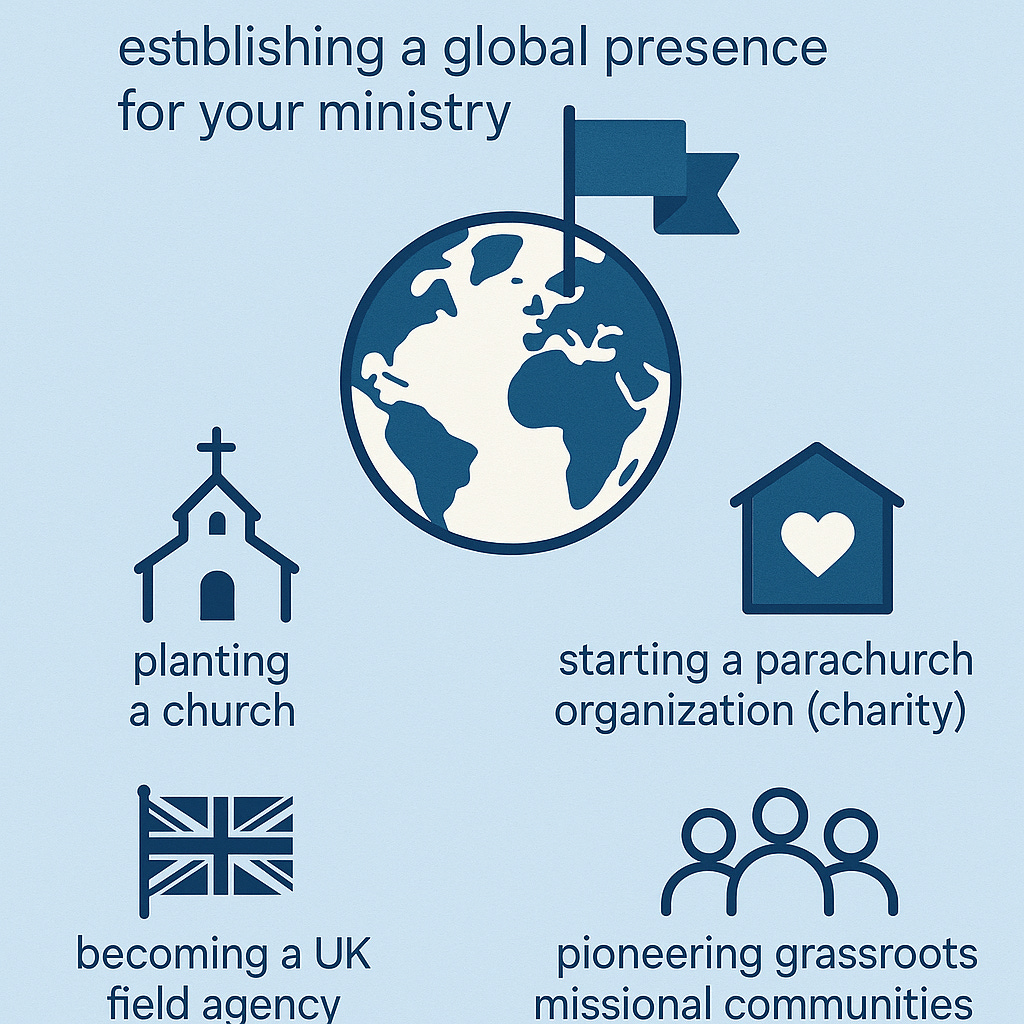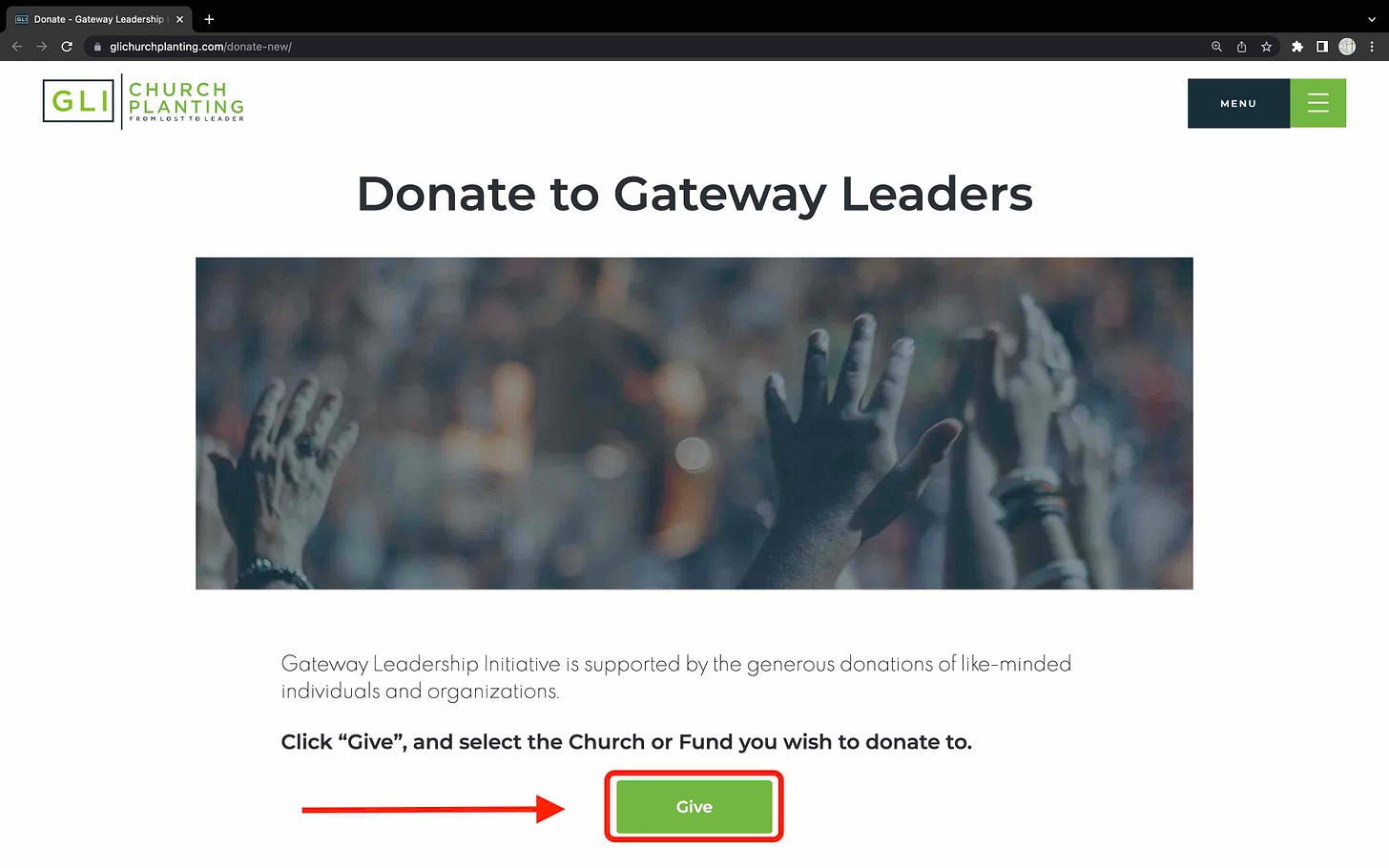The UK is ripe for Revival!
A call to all Ministry Partners, Field Leadership, & New Statistics
The Bible Society recently published a report, which included some remarkable findings and exciting news indicating a “Quiet Revival” in the UK. There seems to be an unexpected change in spiritual climate—a shift in trends and temperature amid tidal movements toward receptiveness in Britain.
Key Stats
50% increase in church attendance over the last 6 years!
→ Over 2 million more people go to church than what was reported in 2018
→ More men (13%) than women (10%) are going to church
→ 1 in 5 people (19%) are from an ethnic minority67% of churchgoing Christians read the Bible at least weekly outside of Sundays!
→ Churchgoers are more likely to actively participate in giving and volunteering
*Charity work, food bank/pantry, and other things that benefit the local community4x increase of 18-24 year-olds are attending church (from 4% to 16%)! 🤯
It’s often said that we’re living in a post-Christian age, a prominent feature of UK society in recent decades. Yet, we’ve met many who have begun to see the pitfalls of secularism—a worldview that has left countless individuals disillusioned, hollowed out, and discontented.
These new findings suggest that a cultural and societal shift is now occurring towards post-secularism. Perhaps it’s time for these new generations, heavily burdened by a godless gravity and yoked to ideas with no transcendent grounding—leaving any semblance of genuine faith shrouded in obscurity, to turn back to faith in Christ.
We believe the Lord goes where He is welcome, and our prayers are for a continued movement, particularly in places of influence and with people of influence. After all, cross-cultural ministry has always been about winning the hearts of key people who have tasted and seen the goodness of the person and work of Christ and have been eternally animated to spread this Good News to the unreached—locally, regionally, or globally.
What’s happening in the UK 🇬🇧 at the ground level?
Large Metropolitan Areas that have historically set the tone for cultural and societal shifts—which can fan the flames of revival.
Apart from Birmingham & Beyond and Go West, another example of the Lord moving within church planting is through the efforts of City to City UK. Their vision is to continue working and establishing new churches in 6 key cities: Birmingham, Edinburgh, Liverpool, London, Manchester, and Oxford. Five of the six focus cities are large, diverse metropolitan areas, with one exception: Oxford, a relatively smaller university city.
*Oxford is roughly 18 square miles, which is comparable to American cities like:
– Bozeman, Montana
– Berkeley, California
– Marquette, Michigan
Apart from Oxford, other key university cities to add to the list include Bath, Belfast, Bristol, Cardiff, Glasgow, Newcastle upon Tyne, Leeds, and Sheffield.Prestigious University Cities and towns where international students can encounter the love of God in Christ—and bring revival to hard to access countries with little to no Christian presence once they return home.
While large metropolitan areas in the UK are most visible to the outside world as cultural epicenters, it would be unwise to dismiss the immense scope and impact of working in university cities. If large cities represent places of influence, university students who graduate from the world's most prestigious institutions represent future influencers, thought leaders, entrepreneurs, and ambassadors of nations, shaping global industries, diplomacy, science, and research.
*The UK is 2/3 the size of California, yet there are nearly as many international students who study in the UK (1,092,802) as there are who study in the whole of the US (1,126,690)! 🤯
→ University of Bath - 38% of students are international from 152 countries
→ University of Birmingham - 15.3% of students are international from 131 countries
→ Aston University - 30% of students are international from 120 countries
→ University of Bristol - 35% of students are international from 150 countries
→ University of Cambridge - 31.8% of students are international from 142 countries
→ Imperial College London - 50.8% of students are international from 140 countries
→ University of Oxford - 46% of students are international from 160 countries
*There are churches in these cities that have effective campus ministries, but you may be wondering whether they are reaching all of these students, much less discipling all of them. No, they aren’t. The question remains: How many churches need to be planted, and how many ministries need to be pioneered to facilitate more encounters and equip these students to reach their peers?
Churches and mission organizations often partner with UK charities, such as Fusion, Friends International, and the UCCF, which focus on student engagement and outreach. In order to have a presence on campus we’ve found that your church must be in close proximity to a campus (or have easy and accessible public transit) and you will need at least four students from your congregation willing to start a “society” (ministry) on campus, otherwise you are prohibited from doing anything on campus, save for Church fairs and the annual Fresher’s Fair.Discipleship Making Movements (DMM) where being missional as a way of life takes on variable forms with a variety of people across class, culture, and creeds. I recently got acquainted with Todd Morr, a passionate proponent of missional communities and the Discipleship Making Movement (DMM). He was a founding leader of the Soma Family of Churches, which started in the Pacific Northwest. He also helped start Josiah Venture, which has engaged in youth ministry training and evangelism for 25 years in 14 different Eastern European countries.
When we connected over a video call, Todd spoke about some incredible movements emerging in the UK, ranging from conventional church planting to those centered around missional communities. One standout example of the latter is the Garden Church (GC) in Norfolk, which is part of the Church of England. GC is a movement that believes that smaller gatherings in homes are creative pockets of hope where people can experience Jesus. Moreover, when compared to a Sunday-oriented expression of church, these outward/outreach-focused pocket communities are low-cost, sustainable, and easy to replicate, which makes them “revival-ready.”
You may be tempted to pigeonhole such a movement as a one-off, whose traction is driven primarily by young adults in a university city that happens to have a vibrant high street and trendy music scene, but that would be false. As their name suggests, “gardens” require area-specific tilling and cultivation. What may have worked decades ago may need some shaking up and revamping. Meanwhile, certain neglected areas of the UK, such as working-class-oriented ministry, which are less trendy and fail to meet a certain curated aesthetic, may be precisely where the Lord is working the most.
“The Garden Network is a network of missional communities around Norfolk, largely in rural areas, although in areas of new housing, and one or two in a kind of inner city estates.” –Dave Lloyd
Field Leadership, Networking, & Resourcing
Our prayer for the next season is for the Lord to increase and diversify our ministry engagement. We see Jesus expanding the scope of our mission while leveraging all our specialized UK-specific knowledge and accumulated cross-cultural experience.
This is an open invitation to our current Sending Team and prospective ministry partners to broaden your purview and intentionality with regard to global missions. Come and take part in what the Lord is doing here in the UK!
Luke 10:2 NIV
He told them, “The harvest is plentiful, but the workers are few. Ask the Lord of the harvest, therefore, to send out workers into his harvest field.
This is an opportunity to have someone you know and trust, who shares a lot of the same DNA, to be your boots on the ground in deeper and more extensive ways:
Pioneering Partnership & Oversight - establishing a global presence for your ministry, such as scouting locations to plant churches, starting a parachurch organization (charity), becoming a UK field agency for missions work, and/or pioneering grassroots missional communities.
Vital Point of Contact - representing your ministry and working as your on-the-ground liaison with existing churches, networks, denominations, and other contacts (charities, immigration solicitors, local councillors, etc). Establishing and maintaining relationships with UK counterparts and entities.
Field Leadership - developing curriculum for training/equipping, setting up intentional cross-cultural work, and creating budgets and itineraries (including accommodation) to receive short-term missions teams from your church.
*If you are interested in any of the opportunities listed above or want to meet up, check-in, or ask questions and seek the Lord in prayer together…
→ Reply to this article via email
→ Send me a DM on Instagram (mg_espineli)
→ Send me a WhatsApp message (+44 7385 902588)
Subscribe
You can subscribe for free and receive articles and newsletters when they are published.
OR
You can join the community by becoming a paid subscriber and get access to our entire archive, exclusive content, and the ability to post comments.
GIVING
If you’ve been following our updates and other content, please consider setting up recurring support or giving a one-time gift to our mission.
Even a small monthly contribution can go a long way in helping us sustain our mission. All charitable donations given to our ministry are tax-deductible.
*Coastlands Community Church has graciously allowed us to raise specified funds for covering Christ Church Brimingham’s UK expenses to have me on their diverse staff team.
*Gateway Leadership Initiative (GLI) handles our general ministry, charitable work, and church planting fund. We are accountable to their funding parameters, which are based on / structured from mission organizations like Greater Europe Mission and others.














